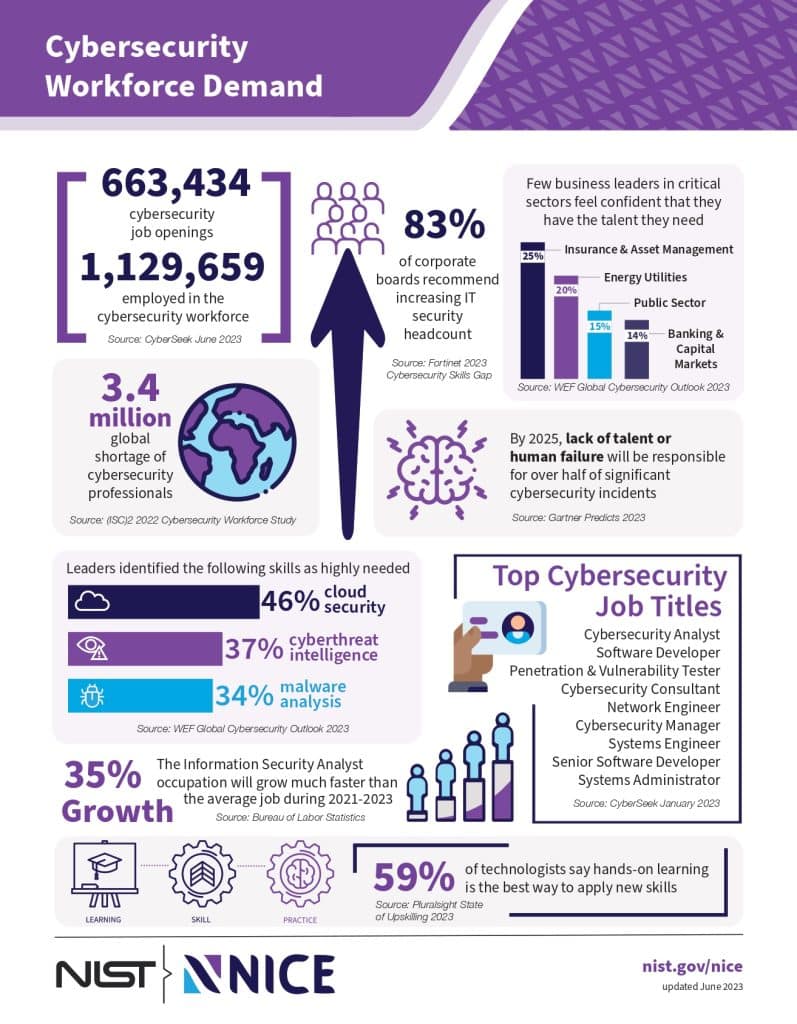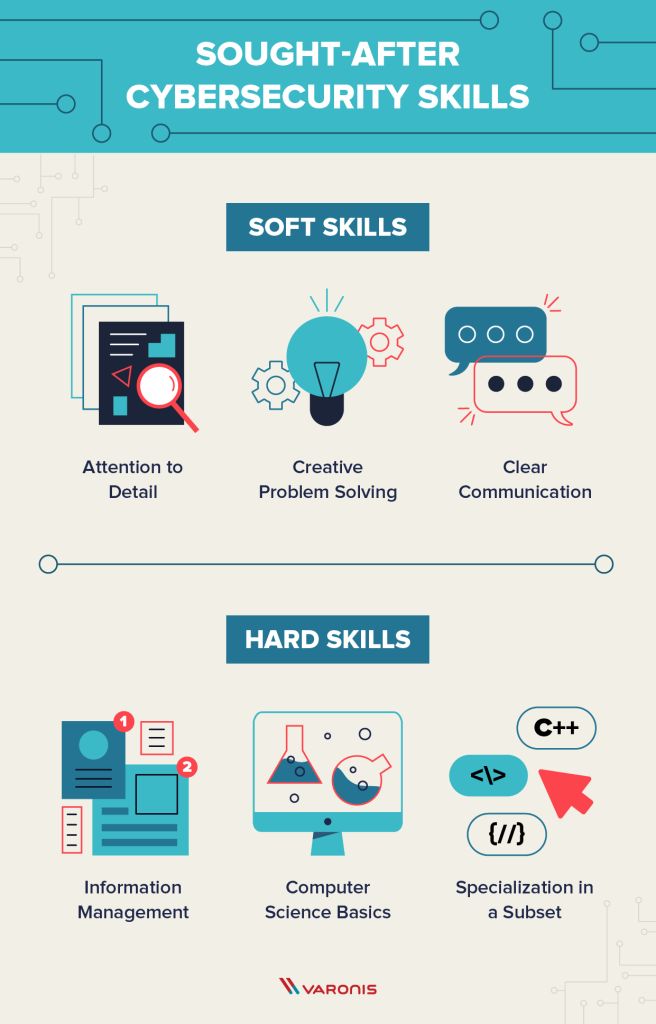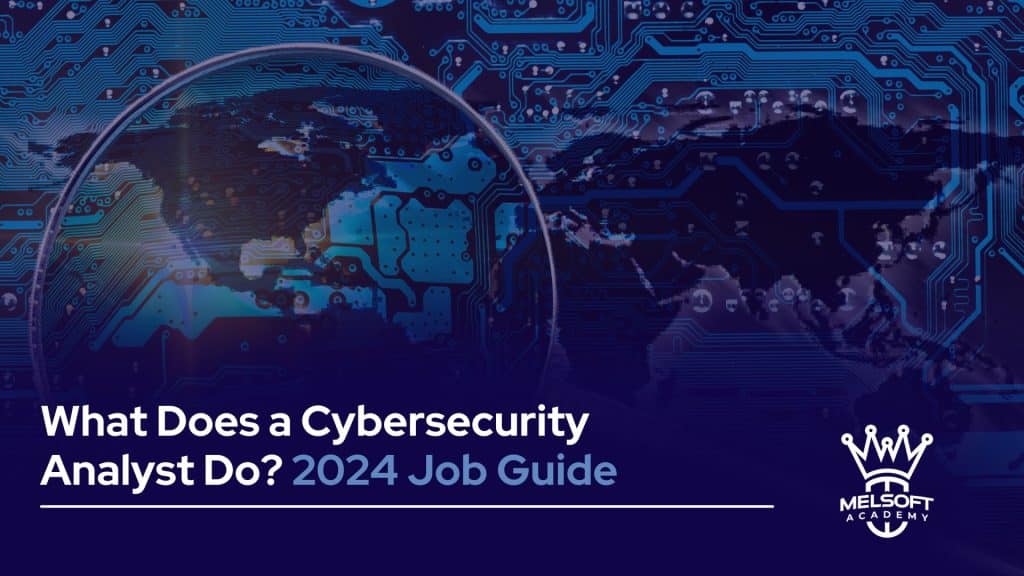The digital world is a constant battleground. Every day, hackers and cybercriminals seek to exploit vulnerabilities in our systems, aiming to steal sensitive data, disrupt operations, or even hold entire organizations hostage. Standing on the front lines of this digital war are cybersecurity analysts, the guardians of our digital fortresses.
This blog post delves into the world of cybersecurity analysts, exploring their crucial role, the skills they possess, the career paths they can pursue, and how you can join their ranks.
What Does a Cybersecurity Analyst Do?
Cybersecurity analysts are the detectives of the digital age. They are responsible for protecting an organization’s hardware, software, and networks from unauthorized access, theft, and data breaches. They are the first line of defense against cyberattacks, working tirelessly to identify, analyze, and mitigate threats.
A Day in the Life of a Cybersecurity Analyst
While the specific tasks of a cybersecurity analyst vary depending on the organization’s size and industry, here are some common responsibilities:
- Monitoring Network Traffic: Cybersecurity analysts constantly monitor network traffic for suspicious activity, searching for signs of intrusion or data exfiltration. This involves analyzing logs, identifying anomalies, and correlating events to detect potential threats.
- Incident Response: When a security incident occurs, cybersecurity analysts are the first responders. They investigate the incident, determine its scope and impact, and take immediate action to contain the damage and prevent further harm.
- Incident Reporting: After an incident, cybersecurity analysts document their findings in detailed reports, outlining the nature of the attack, the affected systems, the actions taken, and the lessons learned. These reports are crucial for improving security practices and preventing similar incidents in the future.
- Security Software Implementation and Management: Cybersecurity analysts install, configure, and manage security software such as firewalls, intrusion detection systems (IDS), intrusion prevention systems (IPS), antivirus software, and encryption tools. They ensure these systems are up-to-date, properly configured, and effectively protecting the organization’s assets.
- Vulnerability Management: Cybersecurity analysts identify and assess vulnerabilities in systems and applications, developing and implementing strategies to patch these weaknesses and prevent exploitation by attackers.
- Security Best Practices: Cybersecurity analysts promote security awareness within the organization by developing and implementing security policies, procedures, and training programs. They educate employees about best practices for secure password management, phishing prevention, and responsible data handling.
- Threat Research: Cybersecurity analysts stay abreast of the latest cyber threats and attack techniques by researching emerging vulnerabilities, analyzing attack trends, and monitoring threat intelligence feeds. This knowledge helps them anticipate potential attacks and proactively strengthen defenses.
- Risk Assessments and Penetration Testing: Cybersecurity analysts conduct periodic risk assessments to identify potential vulnerabilities and weaknesses in the organization’s security posture. They also perform penetration tests, simulating real-world attacks to identify exploitable vulnerabilities and assess the effectiveness of security controls.
Why Pursue a Career in Cybersecurity?

The world of cybersecurity is dynamic, challenging, and rewarding. Here are some compelling reasons why you should consider a career in this field:
- Impactful Work: Cybersecurity analysts play a vital role in protecting organizations and individuals from the devastating consequences of cyberattacks. They safeguard sensitive data, ensure business continuity, and protect critical infrastructure.
- Constant Learning: The cybersecurity landscape is constantly evolving, with new threats and attack techniques emerging daily. Cybersecurity analysts must continuously learn and adapt, staying ahead of the curve to effectively combat new challenges.
- High Demand and Job Security: The demand for skilled cybersecurity professionals far exceeds the available talent pool. This high demand translates into excellent job security and competitive salaries.
- Variety and Excitement: No two days are the same for a cybersecurity analyst. They face new challenges, solve complex problems, and work with cutting-edge technologies, making their work both exciting and intellectually stimulating.
Cybersecurity Analyst Salary and Job Outlook
The demand for cybersecurity professionals is booming, and this trend is expected to continue in the coming years. The US Bureau of Labor Statistics (BLS) projects a 32% job growth for information security analysts between 2022 and 2032, significantly faster than the average for all occupations.
The average annual salary for cybersecurity analysts in the US is attractive, with figures exceeding $100,000 per year. This high earning potential is a testament to the value placed on cybersecurity expertise and the critical role these professionals play in protecting organizations.
Cybersecurity Career Path
A career in cybersecurity offers a variety of paths, allowing professionals to specialize in areas that align with their interests and skills. Here are some common career paths:
- Security Engineering and Architecture: Professionals in this area focus on designing, implementing, and maintaining secure systems and networks. They work closely with developers and IT teams to ensure security is built into every aspect of the organization’s technology infrastructure.
- Digital Forensics Investigator: These specialists investigate cybercrimes, analyzing digital evidence to identify perpetrators, reconstruct events, and provide evidence for legal proceedings. They possess strong analytical skills and a deep understanding of digital forensics techniques.
- IT Security Management: These professionals oversee the overall security posture of an organization, developing and implementing security policies, managing security budgets, and leading security teams. They possess strong leadership, communication, and strategic thinking skills.
- Penetration Testing and Ethical Hacking: These specialists use their knowledge of hacking techniques to test an organization’s security defenses, identifying vulnerabilities and weaknesses that could be exploited by malicious actors. They work to improve security by simulating real-world attacks and providing recommendations for remediation.
How to Become a Cybersecurity Analyst

Source: Varonis
Becoming a cybersecurity analyst requires a combination of education, training, and hands-on experience. Here are some steps you can take to launch your career in this field:
Develop Your Cybersecurity Skills
- Learn the Basics of Cybersecurity: Start by gaining a foundational understanding of cybersecurity concepts, including network security, operating systems, cryptography, and common attack vectors. This can be achieved through online courses, bootcamps, or self-study using online resources.
- Intrusion Detection: Learn to monitor network traffic, analyze logs, and identify suspicious activity using tools like SIEMs (Security Information and Event Management systems).
- Endpoint Management: Gain expertise in securing endpoints such as computers, mobile devices, and IoT devices using firewalls, antivirus software, and network access controls.
- Data Security: Understand encryption, access management, data loss prevention, and the CIA Triad (confidentiality, integrity, availability) to protect sensitive information.
- Networking and Network Security: Develop a solid understanding of networking protocols, network security concepts, and common network vulnerabilities.
- Programming: While not always mandatory, a basic understanding of programming languages like Python, JavaScript, or C/C++ can be beneficial for automating tasks, developing security tools, and analyzing data.
Develop Your Workplace Skills
- Attention to Detail: The ability to identify subtle anomalies and inconsistencies in data is crucial for detecting security threats.
- Communication: Effective communication is essential for collaborating with security teams, reporting incidents, and educating colleagues about security best practices.
- Critical Thinking: Cybersecurity analysts need to analyze data, draw conclusions, and make informed decisions based on their findings.
- Curiosity: Staying up-to-date on the latest threats and security trends requires a thirst for knowledge and a willingness to continuously learn.
- Calm Under Pressure: Responding to security incidents often involves working under pressure, maintaining composure, and making quick, decisive decisions.
Get Certified
Earning cybersecurity certifications can demonstrate your expertise to potential employers and increase your earning potential. Some popular certifications include:
- CompTIA Security+: A foundational certification covering core cybersecurity concepts and best practices.
- Certified Ethical Hacker (CEH): A certification for professionals who want to specialize in penetration testing and ethical hacking.
- Certified Information Systems Security Professional (CISSP): A highly respected certification for experienced cybersecurity professionals.
Gain Experience
Start building your experience through internships, volunteer work, or entry-level IT roles. This hands-on experience will provide valuable insights into the real-world challenges faced by cybersecurity professionals.
Network and Build Connections
Attend industry events, join online communities, and connect with cybersecurity professionals on LinkedIn. Networking can help you learn from others, discover job opportunities, and build valuable relationships.
Become a Cybersecurity Analyst with Melsoft Academy
Ready to embark on a rewarding career in cybersecurity? Melsoft Academy’s Cybersecurity Accredited Bootcamp, accredited by QCTO, provides you with the skills and knowledge needed to become a job-ready cybersecurity analyst in just one year!
Our comprehensive bootcamp covers:
- Cybersecurity Fundamentals: Gain a solid understanding of networking, operating systems, security threats, and vulnerabilities.
- Practical Skills: Develop essential cybersecurity skills, including security analysis, incident response, security testing, and scripting.
- Industry-Recognized Certifications: Prepare for and earn valuable certifications such as CompTIA Security+, CySA+, and others.
- Real-World Experience: Gain hands-on experience through internships and real-world projects, applying your skills in practical scenarios.
Don’t wait! Apply now for Melsoft Academy’s Cybersecurity Accredited Bootcamp and take your first step towards a rewarding career in cybersecurity.
Download our prospectus: Download Prospectus
About Melsoft Academy: Learn More
Apply Now: Apply Here
Apply to the Manati Alternate Student Funding: Apply for Funding
Join the ranks of cybersecurity professionals and make a real difference in protecting our digital world. The future of cybersecurity is bright, and with the right skills and dedication, you can be a part of it.


